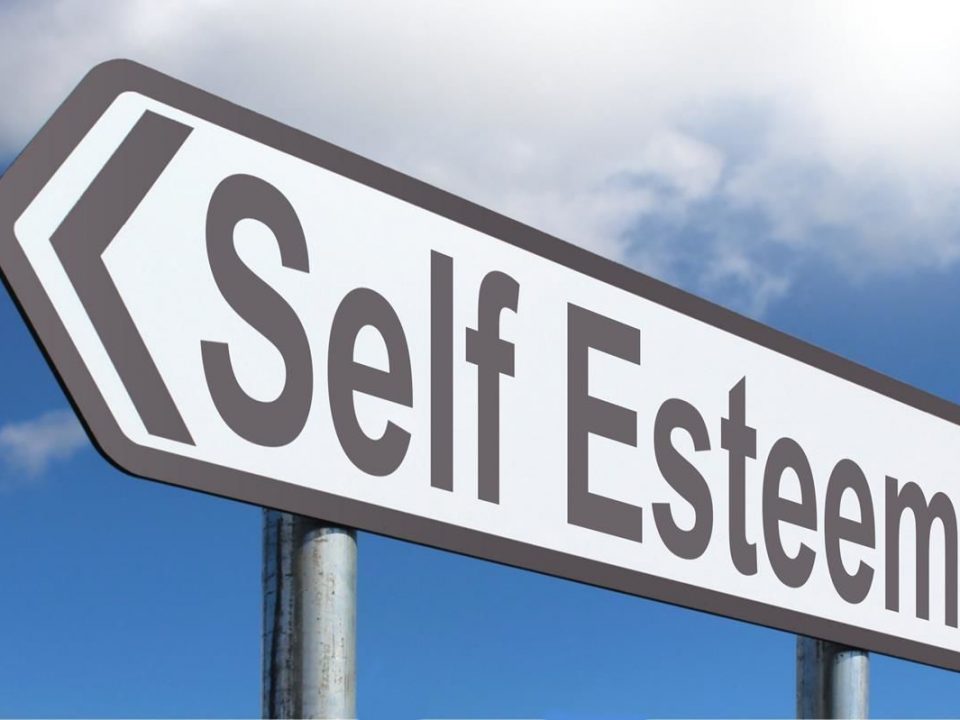10 Expert Tips To Maximize Your Energy

20 Quotes That Changed My Life
June 4, 201910 Expert Tips To Maximize Your Energy
By A.J. Madden
“Be your own espresso.” –Dr. Matthew James
How to use this list:
- Don’t get overwhelmed by all 10 habits and tips. Start small with the 1 to 3 habits that you are most motivated and inspired to do.
- Do what moves you.
- Try them out for three days, up to two weeks.
- Then slowly add more habits over the course of the following weeks and months. Before you know it, you will feel better than you ever have before.
- Identify the number one non-negotiable habit, that if you don’t do it, your day most likely does not go well. Then, make sure that you prioritize it and make it a non-negotiable daily habit. For some people it is good sleep; for others it is exercise or nutrition. Figure out what yours is and do it every day without exception.
- Score yourself on each of habits, on a scale of 1-10, how much you follow the habit. Challenge yourself to slowly raise your scores over the next 90 days.
- Change your environment. Your environment is far more powerful than your willpower.
- Get rid of the processed junk foods from your cupboards and refrigerator so they are not there when you have a moment of willpower weakness.
- Put the 24 ounce bottle of water next to your bed so it’s ready when you wake up in the morning. Surround yourself with health-conscious people who eat well and exercise regularly.
- Move (or remove all together) the social media and news apps from the first screen on your smart phone so you are not tempted to click on them without thinking when you open your phone (yes, this actually happens).
- Find an accountability partner or accountability coach and harness the power of “positive peer pressure”. Find someone you trust, tell them about your goals and what actions you’ll take to achieve them, and schedule regular check-in times with them. You can also choose an individual (or a group of people) who have similar goals to yours, and hold each other accountable.
- According Dr. Tim Church, professor of Preventative Medicine at Pennington Biomedical Research Center, “A significant predictor of whether people are going to stay on an exercise program is if they have a friend (either an individual or group) who works out with them. Getting people connected to each other is critical.”
And now the Ten Habits:
- Reduce your stress by:
- Replacing your negative self-talk with positive self-talk.
- Spend less time with negative people and negative situations that drain your energy, and spend more time with positive people and in positive situations that give you energy. Find your positive peer group, and do more of what you love and less of what you don’t.
- Clean, organize, and declutter your home, car and workspace. Simplify. Sell or donate things that you haven’t used in the last 6 months and things that don’t bring you joy.
- News and Social Media Dieting. Cut out (or dramatically reduce) watching, listening to, and reading the daily news, and limit or eliminate reading social media feeds. Much of the news, television, and movies are meant to traumatize you. You do not feel good after you watch them.
- Be on time (or better yet, early) for all commitments.
- Turn off all cell phone notifications, including text messages and emails. This simple practice takes you out of “reactive and distracted” mode, and into “proactive and focused” state of mind.
- Upgrade your ATTITUDE (you choose how you respond to circumstances).
- Power Quote: Your body can’t differentiate between all the different stressors in your life. It just dumps them all into one big bucket called “stress” Think of it like water from hundreds of taps flowing into a bucket. Financial stress, career, relationships, health, and training stress are all different taps. If the bucket overflows, that’s when you get sick or injured. So when all the other taps are flowing full blast, turn down the training tap a little bit so your tub doesn’t overflow. Training volume is the one stressor you have absolute control over. Alwyn Cosgrove
- Keep it real and eat real foods. What you eat is what you is. Cut down on (or eliminate) processed sugar and processed carbohydrates from your diet. Replace processed foods with more whole, natural foods that a caveman had access to (fruits and vegetables, lean protein and healthy fats). If it breathes or if it’s green, eat it. Shop on the outside shelves of the grocery store, not the inside aisles. A simple rule: If it makes you feel good and gives you energy, eat it. If it makes you feel tired, foggy, and drains your energy, limit it or avoid it all together. Ask yourself after each meal how you feel, and soon you’ll realize which foods to avoid and which foods to “double down” on. Keep a diary of everything you eat.
- Start your day with 16-24 ounces of water (first thing when you get out of bed), and aim to drink a total of 12-16 eight-ounce glasses of water every day.
- Do some form of exercise you ENJOY and are motivated to do. Do what moves you. Work your way up to 30-60 minute sessions, five days a week. Examples: walking, swimming, biking, basketball, resistance training.
- Do some form of resistance training that you enjoy 2-3 days a week. Do what moves you.
- Walk outdoors/in nature for 30-60 minutes three times a week. Added bonus: do it first thing in the morning on an empty stomach for an extra fat-burning effect.
- Practice 10 minutes of simple mobility, stability, balance, and flexibility work 3-5 days a week. Simple example: yoga.
- Do 1 minute of daily exercise to improve your posture.
- Learn how to breathe properly (in through your nose and into your belly) and practice at least one minute of mindful breathing while sitting in silence every day.
- Get 8-10 hours of quality sleep each night. Cut out caffeine at least 8 hours before bedtime (this alone can have a dramatically positive effect on your sleep quality).
Peak Performance Mindset:
- Progress over perfection.
- Don’t try to be perfect with your nutrition in the beginning.
- Exercise and movement: start small, smaller than you think you should. You can start with one minute of walking, or one pushup, or one minute of yoga. Think big, act small. Focus on just getting 1% better every day.
Peak Performance Habit:
Write down your goals and read them every day.
The Science Behind The 10 Habits
Reduce your stress:
- Replace your negative self-talk with positive self-talk.
- Spend less time with negative people and negative situations that drain your energy, and spend more time with positive people and in positive situations that give you energy. Find your positive peer group. “Pay attention to whom your energy increases and decreases around, because that’s the universe giving you a hint of who you should embrace or stray from.” Wesley Snipes
- Clean, organize, and declutter your home, car and workspace. Simplify. Sell or donate things that you haven’t used in the last 6 months and things that don’t bring you joy.
- News and Social Media Dieting. Cut out (or dramatically reduce) watching, listening to, and reading the daily news, and limit or eliminate reading social media feeds.
- Be on time (or better yet, early) for all commitments.
- Turn off all cell phone notifications, including text messages and emails. This simple practice takes you out of “reactive and distracted” mode, and into “proactive and focused” state of mind.
- Upgrade your ATTITUDE (you choose how you respond to circumstances).
Key Statistic: Individuals who watched just three minutes of negative news in the morning were 27% more likely to report their day as unhappy six to eight hours later. Shawn Archor, Harvard researcher and bestselling author of “Big Potential” and “The Happiness Advantage”
Key Science: According to the University of Melbourne, a number of their studies have found an association between social media news and depression, anxiety, sleep problems, eating issues, and increased suicide risk.
Key Psychology: 6 Benefits Of An Uncluttered Space by Alice Boyes, Ph.D. (PsychologyToday.com)
- Decluttering creates a sense of confidence and self-efficacy (seeing yourself as competent)
- Decluttering is energizing
- Cleaning and organizing reduces anxiety.
- Decluttering allows mind wandering (and sometimes physical activity)
- Decluttering can reduce relationship and family tension
- When you declutter, you often find lost treasures
Key Science: A Study published in the Lancest Psychiatry found people who spend the night checking social media are more likely to suffer for mood problems such as neuroticism and bipolar disorder, and rate them selves as less happy and more lonely.
Key Statistic: 70% of your happiness comes from your relationships with other people. -1996 study by researchers Murray and Peacock
Key Statistic: According to a Harvard Medical School study of 5,000 people over 20 years, you are 15% more likely to be happy if a friend of yours is happy, and 10% more likely if a friend of your friend is happy, and 6% more likely if a friend of a friend of a friend is happy. Loneliness has an even more powerful effect. You are 52% more likely to feel lonely if a close friend of yours feels lonely, and 25% more likely if a friend of your friend feels lonely, and 15% more likely if a friend of a friend of a friend (someone you’ve never even met) feels lonely. The same 3 degrees of separation effect can be found among binge drinkers, smokers, and obesity. If you become obese, it triples the chances of a close friend becoming obese.
Key Statistic: 95% of your emotions are determined by how you talk to yourself throughout your day. Brian Tracy
Key Science: The way you speak to yourself matters the most. Brainwave tests prove that when we use positive words, our “feel good” hormones flow. Positive self-talk releases endorphins and serotonin in our brain, which then flow throughout our body, making us feel good. These neurotransmitters stop when we use negative words. Ruth Fishel
Key Statistics: Samuele Marcora, exercise researcher:
- Positive or motivational self talk (saying “feeling good” or push through this!”) improved time to exhaustion by 18% on a cycling test
- The running economy of runners who smiled while training was 2.8 percent better than when they frowned
- The time to exhaustion of cyclists who were shown a happy face was 12 percent better than when they viewed a sad face
Keep it real and eat real foods.
What you eat is what you is. Cut down on (or eliminate) processed sugar and processed carbohydrates from your diet. Replace processed foods with more whole, natural foods that a caveman had access to (fruits and vegetables, lean protein and healthy fats). If it breathes or if it’s green, eat it. Shop on the outside shelves of the grocery store, not the inside aisles. A simple rule: If it makes you feel good and gives you energy, eat it. If it makes you feel tired, foggy, and drains your energy, limit it or avoid it all together. Ask yourself after each meal how you feel, and soon you’ll realize which foods to avoid and which foods to “double down” on. Keep a food diary of what you eat.
Key Statistic: There are 100 million neurons in your gut brain. 95% of the serotonin that is created and used is in your gut; it is constantly communicating with your head brain. The top 2 toxins to your gut brain: sugar and refined process flour. In our millions of years of evolutionary history, we ingested very little sugar and wheat; now the average American ingests 152 pounds of sugar and 133 pounds of wheat. In 1700, the average sugar ingestion was 5 pounds. Dr. Alberto Villardo, One Spirit Medicine
Key Statistic: Your measurement at your belly button should be less than half your height in inches. Keeping this ratio can increase the life expectancy for every person in the world. Dr. Margaret Ashwell
Key Statistic: Over the course of a 15-year Harvard university study on added sugar and heart disease, participants who took in 25% or more of their daily calories as sugar were more than twice as likely to die from heart disease as those whose diets included less than 10% added sugar.
Key Statistic: According to the World Health Organization, 80% of all cases of heart disease, stroke and Type 2 diabetes could be prevented if people eat healthier, were more physically active, and stopped using tobacco.
Key Science: People who keep a food diary lose twice as much weight, research by Dr Jack Hollis finds. Making a little note of what you are eating helps increase self-awareness of food intake. The more notes you make, the more weight you lose. A food diary does not have to be formal — it could be something as simple as sending yourself an email or text message. People in the study lost an average of 13 pounds in six months as part of a standard diet and exercise programme. Those that kept food diaries, though, lost twice as much. The study included 1,685 people who followed a heart-healthy diet rich in fruit and vegetables. They also attended weekly group sessions and did 30 minutes of moderate intensity exercise each day. After six months, more than two-thirds had lost at least 9 pounds and the average weight loss was 13 pounds. People who kept food diaries, though, lost twice as much weight.



